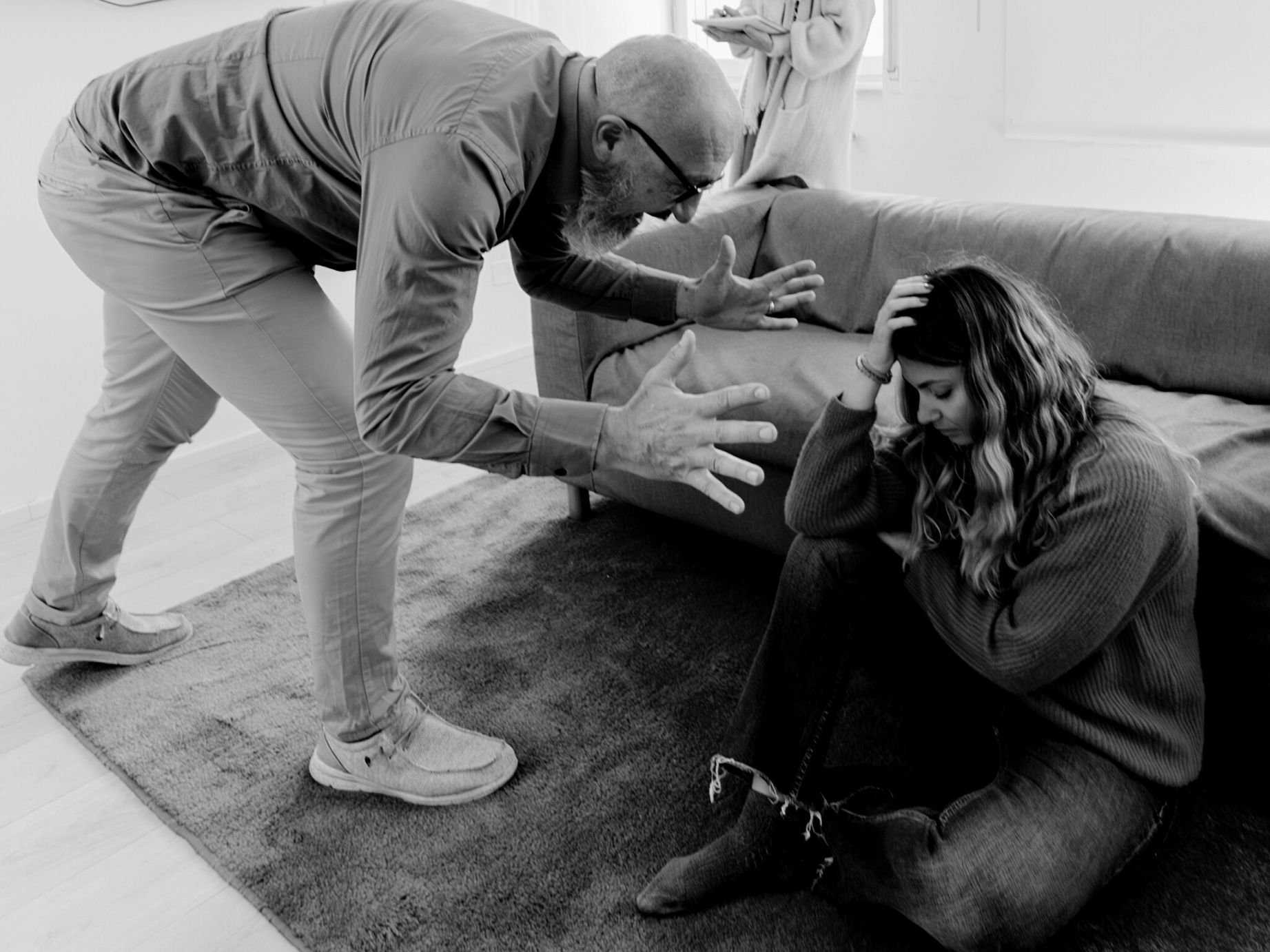Interpersonal Relationship Issues

A healthy relationship doesn’t drag you down. It inspires you to be better.
As humans, we are social beings and we all need positive social connections to thrive.
Interpersonal relationships make up every relationship that fulfills a range of emotional and physical needs for you. Given the importance of relationships to our well-being, it’s necessary to learn how to develop and maintain them - and when to walk away…
We can help you resolve your interpersonal relationship issues in a healthier, more constructive way.
-
We offer IN-PERSON counselling sessions at one of our two locations: Burlington, Ontario or Oakville Ontario.
We also offer VIRTUAL counselling sessions either by secure VIDEO or by PHONE.
-
BURLINGTON
414 Pearl Street, Unit 11
Village Square, Burlington, ON L7R 2N1
OAKVILLE
775 Pacific Road, Unit 34
Oakville, ON L6L 6M4
-
INITIAL CONSULTATIONS
FREE
We offer free 20 minute consultations with our therapists to ensure that you can get any of your questions about therapy at Peachey Counselling answered and to see if your selected therapist is a good fit for you.
To book a free consultation, please visit our New Client Bookings page.
SPECIALIZED SERVICES
INTIMATE PARTNER AND FAMILY VIOLENCE
STARTING AT $140 CDN*
*Our rates for these specialized services vary from $140 CDN to $275+ CDN per session based on the service and expertise of the therapist required.
PLEASE NOTE: Many extended health benefit programs will cover the cost of counselling with a Registered Social Worker. Please check with your insurance provider.
Additionally, services provided by a Registered Social Worker are tax deductible as a medical expense
Interpersonal relationships teach us who we are.
From a very young age, the people around us form key aspects of our personalities and value systems. They can help give us a sense of purpose and direction. There’s also a strong link between relationships and emotional health. That’s why it’s vital to surround yourself with people who give you joy, support, and comfort.
It’s normal for certain relationships to come to an end. Especially, if they are not good for you. Sometimes, you just have to let go.
The most important relationship you’ll ever have is with yourself. You have to take care of yourself and your feelings. If a relationship is not good for you, then it’s time to consider whether you really need them in your life.
Maintaining relationships takes work and conflict is bound to happen.
TYPES OF INTERPERSONAL RELATIONSHIPS
-
Family includes: our parents, siblings, grandparents, aunts, uncles, cousins, caregivers, and guardians.
They are the first relationships we ever form and they are often the closest ties we have in our lives. These bonds can last a lifetime and are often the most influential positive support in our lives.
It is not unusual for us to hold different values or opinions from our family members. This is normal and reasonable. However in some cases, these personal differences can turn into estrangement. When communication and interactions become full of conflict, and differences cannot be overcome, familial relationships can get strained to the point of non-existence.
-
As the saying goes, ‘you don’t get to choose your family, but you do get to choose your friends’.
And, while family connections may be some of our longest relationships, many friendships are often more important to us.
We all experience different types of friendships throughout our lives. Some of these relationships will last for a short time, while others will last a lifetime. This is not uncommon. We typically find that our friends reflect different phases in our lives and certain aspects of our personality. As we grow, so do these friendships. As we change, so do these friendships. Sometimes, we find that a once satisfying friendship no longer brings us the same joy or support. Sometimes, we find ourselves in a toxic situation and we separate - or try to separate - ourselves from the relationship.
-
Acquaintances are known as ‘secondary’ interpersonal relationships.
Common examples are neighbours, friends of friends, others you interact with on a semi-regular basis, and coworkers. Acquaintances exchange pleasantries and casual conversations, but it usually doesn’t evolve into a ‘friendship’.
The fact that we probably spend more time with our coworkers that our own families, is it normal to from strong bonds with your colleagues as you share time, space and experiences. However, even if some colleagues turn into friends, it’s important to remain respectful to all coworkers so that there is an appropriate balance between the personal and the professional.
-
Although a romantic relationship can start as a friendship, the way we feel love for our friends and romantic partners is not the same.
You can love your friends but you are not in love with them. When mutual attraction evolves from I like you to I like you and I love you - and is expressed through physical and sexual touch - this is a romantic interpersonal relationship.
As with friendships, our romantic relationships grow and change as we do. Sometimes, we find a once satisfying and healthy relationship is no longer that. Sometimes, we find ourselves in unhealthy relationship that requires professional support or closure.
All healthy interpersonal relationships are built on loyalty, support, and trust. Mutual respect and reciprocation of these qualities is important in maintaining all your relationships.
At some point in the relationship, a conflict will arise. How you deal with it will determine whether the conflict strengthens your relationship or not. Rather than avoid the point of contention, the most important thing you can do is maintain clear and open communication. It’s important to talk it through and listen to each other’s point of view.
When you build your relationships on the basis of talking and listening, it helps you work through issues and form stronger bonds. This type of solid communication doesn’t just help you get through the not-so-good moments, it ensures that you will be able to resolve any issue with respect and honesty.
Important relationship habits:
Without trust, there is no relationship so be honest and trustworthy
Put in consistent effort
Listen
Always be respectful
Be as non-judgmental as you can
Be aware of your emotions and manage your expectations
Establish and maintain positive boundaries
Be open to feedback and constructive criticism
Some relationships are for a limited time only.
Relationships go through a series of stages as they mature. They last until death but other relationships?
In a 1980 study psychologist George Levinger created a model that detailed the different stages of an interpersonal relationship.
The 5 Stages of Interpersonal Relationships: An ABCDE Model
A = Acquaintance/attraction. We meet other people and feel an initial attraction, often based on physical beauty and similarity.
B = Build-up. We become increasingly interdependent as we reveal more and more about our private selves. We get irritated by one another, but the more pleasant aspects may well keep the relationship going.
C = Continuation/consolidation. Longer-term commitments are made, such as marriage. The partnership enters what may be a life-long stable relationship.
D = Deterioration. Many relationships decay, due to several factors. These include relative effort, rewards, barriers to exit (such as marriage and social obligation) and the availability of alternatives.
E = Ending. The relationship ends when partners agree to separate or one leaves.
How can counselling help?
Interpersonal relationships touch all aspects of our lives. Without strong relationships, it’s possible to feel lonely and undervalued as a person. You may also start feeling that you are ‘not worthy’ or ‘good enough’ or ‘deserve’ a good relationship.
You can’t build positive and healthy interpersonal relationships if you don’t have a good relationship with yourself. Sometimes, it just about taking the time to get to know yourself and your needs and having someone to talk with who can give you objective advice and guidance. If certain issues are impacting your relationships with others, talking with a therapist can provide strategies to ensure that conflicts can be resolved with minimal emotional damage.
Through counselling you can learn the skills you will need to cope emotionally and work through the issues in your relationship(s). You can learn more about yourself and can come to see this as an opportunity for growth and personal development.
With counselling you may even be able to learn more about what you require and desire from a relationship, and may discover more about your own personal nature and characteristics.
We’re here to help you through this difficult challenge.
We are one of a handful of professionals - in our region - who offer therapeutic support for for those need guidance navigating interpersonal relationship issues and conflict. The specialized services and workshops we offer are uniquely designed with healthy relationships in mind. Our ultimate goal and role is to help you move forward to resolve relationship issues and conflict in the least stressful and most positive way possible.
Our specialized services are provided by Registered Social Worker and Accredited Family Mediator, Stefanie Peachey and specially trained members of our therapy team. Each member has their own specialties and experience and has been carefully selected to ensure that the right level of expertise and commitment is here for you.





